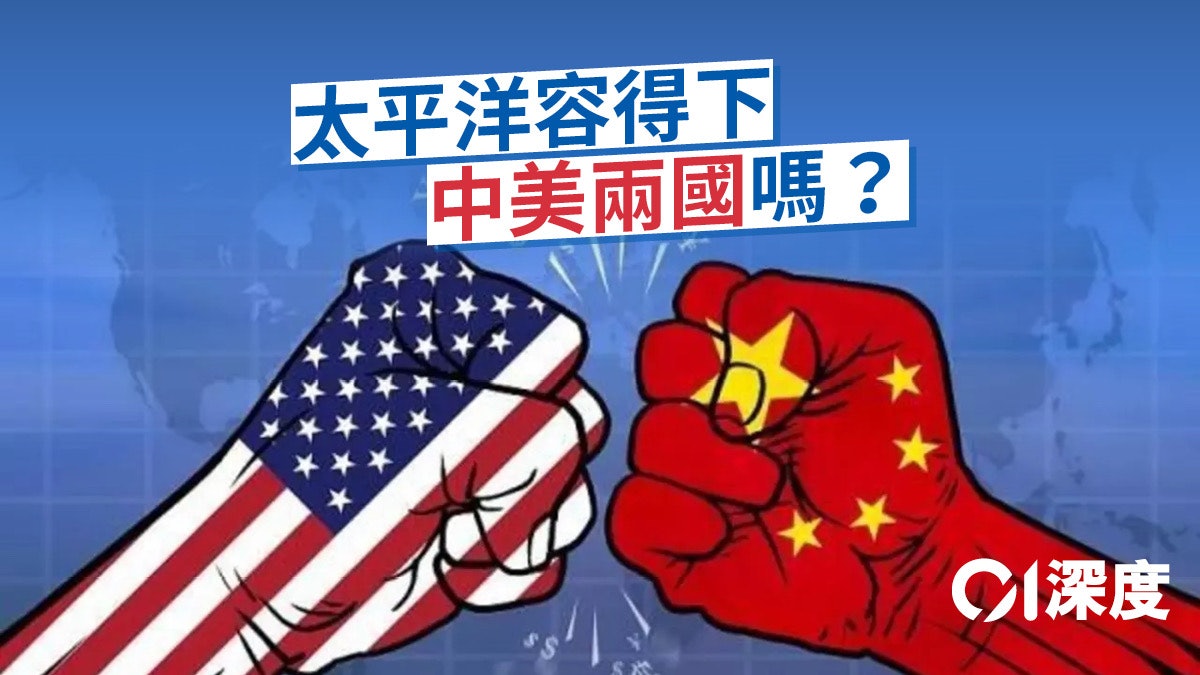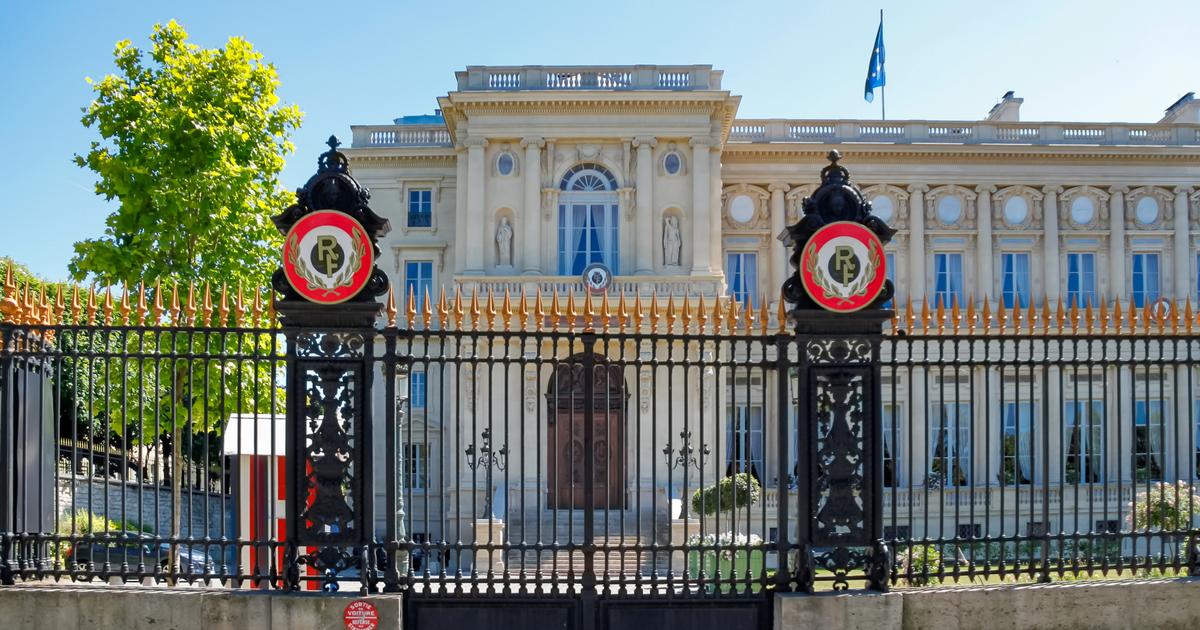After the conclusion of the 20th National Congress of the Communist Party of China, the outside world is generally concerned about how China will carry out its "big power diplomacy" under the new situation.
Huang Ping, vice president of the National Association for Hong Kong and Macau Studies and director of the Taiwan, Hong Kong and Macau Studies Center of the Chinese Academy of Social Sciences, recently (December 19) delivered a speech in Hong Kong, pointing out that there are structural differences between China and the United States, coupled with the lack of mutual trust between the two sides, it will be difficult to return to the "honeymoon" Expect".
However, he believes that the two countries still have a lot of common interests. As great powers, they should take the initiative to assume international responsibilities. The only way out is to work together to deal with global issues.
He also reminded Hong Kong, a place where China and foreign countries meet, to be careful not to highly politicize internal issues, lest it become a tool for the United States to contain China.
Huang Ping, vice president of the National Hong Kong and Macau Studies Association and director of the Taiwan, Hong Kong and Macau Studies Center of the Chinese Academy of Social Sciences, delivered a speech to structure Sino-US relations.
(Photo by Li Shuyao)
China and the United States have not seen a significant improvement,
Hong Kong is still full of thorns
In fact, since the anti-revision incident in 2019, Hong Kong has inevitably been involved in the game between China and the United States.
In July 2020, when the "China-US trade war" was the most intense, the then US President Trump signed the "Hong Kong Autonomy Act" to sanction Hong Kong. "Made in Hong Kong" replaces the original "Made in Hong Kong" label.
However, in fact, Hong Kong’s status as a free port and an independent customs territory is recognized and protected by the World Trade Organization (WTO). Therefore, the SAR government filed a complaint with the WTO in October of the same year, and the WTO established a “Dispute Settlement Expert Group”.
Two years later, the WTO finally ruled recently (December 21) that the U.S. regulations on Hong Kong violated WTO rules. Because the situation between the U.S. and Hong Kong does not constitute an "international emergency", the U.S. should not take discriminatory measures against Hong Kong products. unfair treatment.
However, the U.S. side has expressed its opposition to the ruling and firmly refuses to withdraw the relevant arrangements.
It can be said that as long as Sino-US relations do not improve significantly, Hong Kong will still have to face many storms.
Huang Ping, a famous sociologist who once served as the director of the Institute of American Studies of the Chinese Academy of Social Sciences, has focused on the development of "one country, two systems" in recent years. Interpretation" lectures taught a lesson for Hong Kong from the perspective of mainland scholars.
He first analyzed the structural differences between China and the United States, then deduced the possible direction of the relationship between the two countries, and finally pointed out the important role that Hong Kong should play.
Hong Kong has to prepare for the worst, but also continue to leverage its own business advantages.
﹙Reuters﹚
Structural divides, serious
conspiracy theories intensify
Huang Ping believes that China and the United States have always had structural differences in politics and diplomacy: the United States emphasizes that "hegemony cannot be challenged" and advocates "a zero-sum game where the winner is king";
In his view, as China’s economic, technological, and military strengths continue to improve, the United States is uneasy about its rise. It is worried that it will expand step by step, form alliances everywhere, change the global political and economic structure, and eventually impact the US-led world. world order; but Huang Ping believes that today's China is just trying to explore how to rise peacefully and advocate "multilateralism" that is more in line with the sustainable development of the world instead of "unilateralism" that only suits the interests of the United States, such as actively promoting the "Belt and Road Initiative" Construction is to replace "alliance" with "partnership" and "zero-sum" with "win-win" in the hope of "common prosperity" with many countries.
Huang Ping explained that some of these structural differences stem from the completely different histories, cultures, social systems, and development paths of China and the United States, and some are due to the lack of mutual trust between the two sides. There is fierce competition.
It can be seen from the trajectory of the game that whether it is a trade war, a technology war or a cold war, it mainly started during the Trump administration and continued to the current President Biden. Although the relationship between the two sides has eased slightly, there has been no significant improvement.
Take the "war on chips" as an example, which is currently in full swing.
China is one of the world's largest chip import markets. At the same time, it is also committed to developing high-end chips to achieve the goal of semiconductor self-sufficiency set by "Made in China 2025", which will increase from 9% to 70%.
For China, this is an important strategy to become a "manufacturing power"; but in the eyes of the United States, this will pose a threat to its competition in the field of science and technology and national security risks, so it signed in August and October this year. "Chips and Science Act 2022" (Chips and Science Act 2022), invested 52.7 billion U.S. dollars to support the development of the country's semiconductor industry; issued a 10-year ban on China, expanding the ban on the export of finished chip products and process equipment to China by companies related to the United States and prohibits American nationals from developing and producing advanced semiconductors in China.
U.S. Commerce Secretary Gina Raimondo claimed that authorities were "putting up fences to ensure that companies receiving chip funding cannot compromise national security."
Chinese Foreign Ministry spokesman Mao Ning criticized that this practice hinders international scientific and technological exchanges and economic and trade cooperation, and has an impact on the stability of the global industrial chain and supply chain and the recovery of the world economy.
The "chip war" launched by the United States against China is in full swing.
(Source: REUTERS/Ann Wang)
Game crisis, global development
, common interests not decreasing but increasing
International public opinion generally believes that the US ban on Chinese chips is quite strict.
China has filed a lawsuit against the World Trade Organization against the United States for abusing export controls to maintain "its leadership in science, technology, engineering and manufacturing", which has clearly threatened the "stability of global industrial supply chains".
However, the United States dismisses this, indicating that the WTO is not the "appropriate platform" to address "national security issues".
But no matter how the "chip war" burns, it is certain that due to the impact of the new crown epidemic and the Sino-US trade war, since 2020, there has been a serious shortage of global chip manufacturing, which has caused the global semiconductor industry chain to fall into a supply crisis. Under the "chip war", it is believed that the crisis will intensify.
It is not difficult to foresee that if China and the United States fail to rebuild mutual trust, it may affect crisis management and control in other areas, leading to continued tension in the global political and economic situation.
Huang Ping is worried that it will be difficult for China-US relations to return to the "honeymoon period". He hopes that the two sides can correctly view each other's domestic and foreign policies and strategic intentions, and establish a tone of "dialogue" rather than "confrontation" and "win-win" rather than "zero-sum" exchanges.
In August this year, U.S. Speaker of the House of Representatives Nancy Pelosi visited Taiwan and held talks with Tsai Ing-wen and other members of Taiwan’s ruling authorities, which not only plunged Sino-U.S. relations into a freezing point, but also triggered the biggest crisis in the Taiwan Strait since 1996.
China once issued a stern warning, pointing out that if the US insists on going its own way, there will be serious consequences including military response.
After three months of precipitation, President Xi Jinping and US President Biden finally broke the ice at the G20 summit in Bali, Indonesia last month.
Huang Ping believes that the fact that the two heads of state did not mention Pelosi's visit to Taiwan shows that they are reviewing bilateral relations from a long-term strategic perspective, not being hindered by a single specific incident at hand, and are gradually pushing Sino-US relations back on track.
According to the official media Xinhua News Agency, Xi Jinping mentioned that "the Taiwan issue is the core of China's core interests and the first insurmountable red line in Sino-US relations." He hoped that Biden would stick to his promise not to support "Taiwan independence." Committed to maintaining peace and stability across the Taiwan Strait."
Many analysts believe that although the two sides have no new statement on the Taiwan issue, the overall rhetorical confrontation has turned moderate, and they are willing to respect each other's core interests.
After the talks, the White House issued a statement stating that the leaders of the two countries agreed to arrange for US Secretary of State Antony Blinken to visit China in early January next year to follow up on the follow-up discussions of the Xi-Prayer talks.
On November 14, President Xi Jinping met with US President Joe Biden in Bali, Indonesia.
(Xinhua News Agency)
Hong Kong still has an important role
to avoid becoming a tool to contain China
Huang Ping continued to point out that under the current situation, the common interests of China and the United States are "not reduced, but more", which mainly include three major interests: first, China and the United States should not conflict, not confront, and coexist peacefully. The most basic common interests of the two countries; second, China and the United States are deeply embedded in each other's economy, and both need to benefit from each other's development; third, the recovery of the global economy after the epidemic, the response to climate change, and the resolution of regional hotspots and difficulties are all important issues. It is inseparable from the coordination and cooperation between China and the United States.
Huang Ping explained that the in-depth development of globalization requires the two countries to be economically interdependent, share weal and woe, and jointly participate in global governance.
In particular, China and the United States, as two major countries, have the responsibility to maintain a constructive relationship. Even if there are fundamental differences in systems, these differences will continue to exist in the future. Therefore, the two sides need to build a platform for mutual learning and common development. Learn from each other's strengths and live in harmony, instead of treating "difference" as an obstacle to the development of Sino-U.S. relations, let alone trying to forcibly change or even subvert the other side to become yourself, fighting to the death.
Finally, Huang Ping reminded that Hong Kong, as a special zone of the country, must prevent highly politicized internal livelihood issues, so as not to become a tool for the United States to contain China.
He mentioned that since Hong Kong was once a "victim" of the Sino-US game, Hong Kong should not only prepare for the worst, but also continue to give full play to its own business advantages in three aspects: first, consolidate international finance, trade, shipping and aviation, innovation and technology, The status of innovative technology, cultural tourism and other fields; secondly, maintain more open and closer exchanges and cooperation with various countries and regions, and reconstruct Hong Kong's competition in the region, Asia-Pacific and even the world; finally, promote the development of the Guangdong-Hong Kong-Macao Greater Bay Area, Actively integrate into the overall development of the country and play the greatest role in realizing the great rejuvenation of the Chinese nation.















